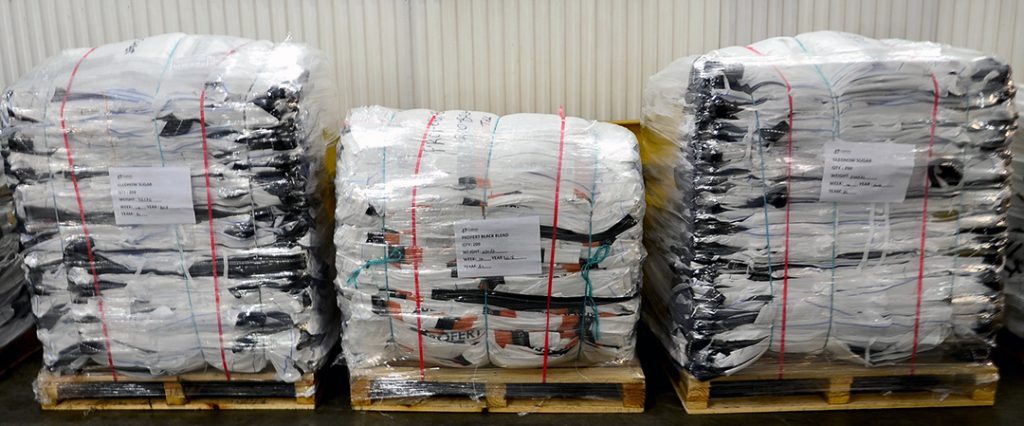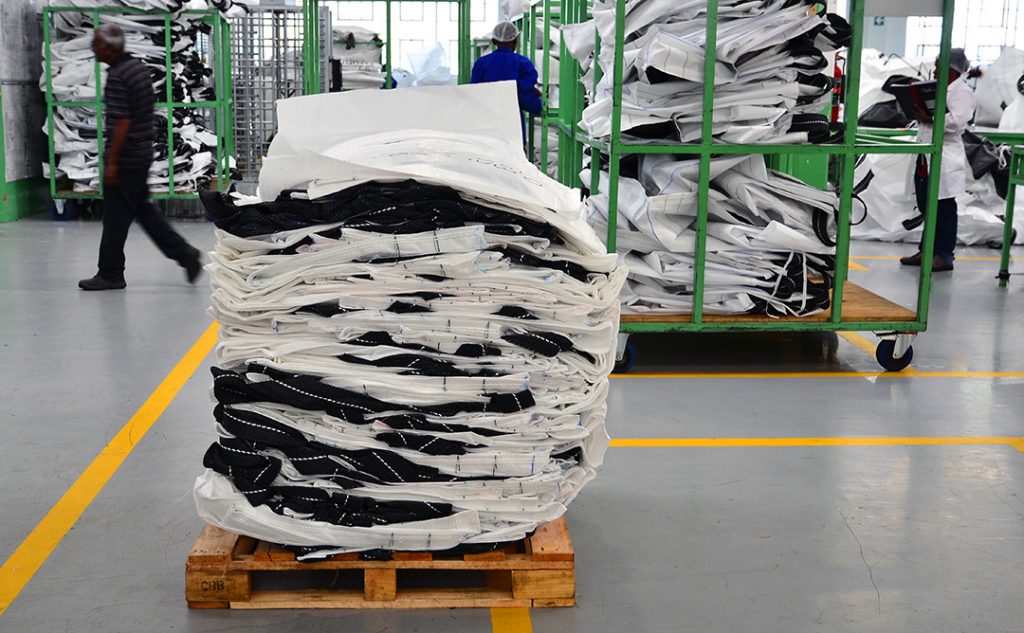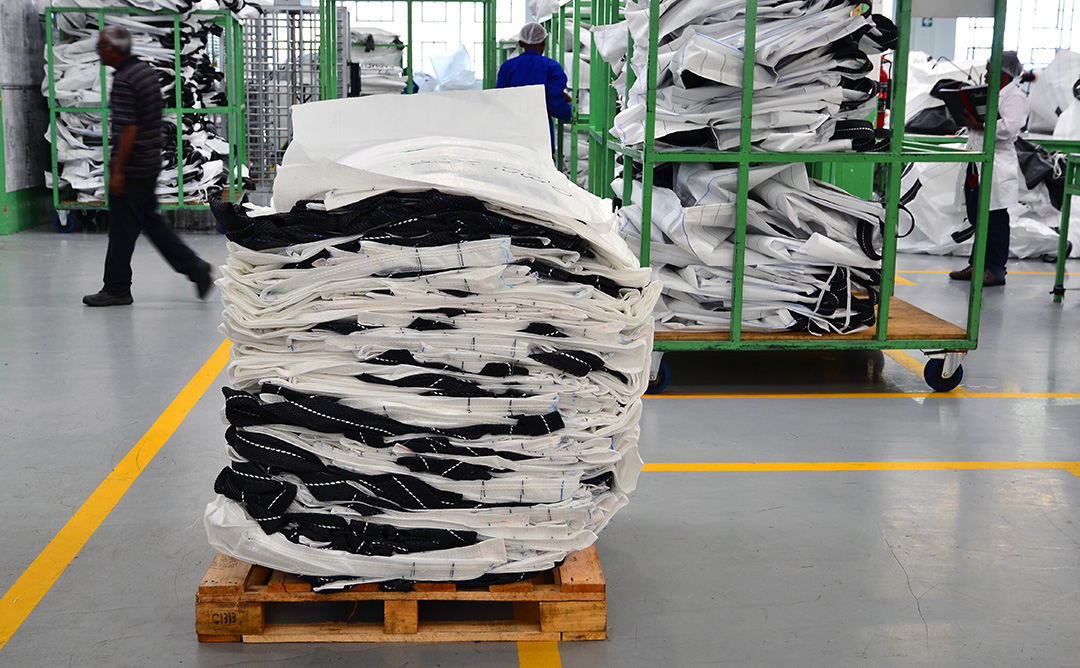Bulk bags are the ideal solution for the transportation and storage of various goods. They are known for their longevity and durability, which makes it more affordable and easier to carry large volumes of produce. However, not every business that uses bulk bags is aware that they can be reused and recycled.

How to reuse bulk bags
Most bulk bags are designed for single-use, however, there is a multi-trip option. One of the most appealing aspects of bulk bags is that many of the modern designs and materials allow them to be reused many times. This means that you can store or ship several loads of produce per bag. Once the bulk bag has reached its end of usable life, it can be sent to a recycling company where the woven polypropylene material is broken down and processed into raw material.
Custom Bulk Bags follows certain procedures for cleaning and refurbishing our products. The Flexible Intermediate Bulk Container Association (FIBCA) recommends the following procedure for safely and correctly reusing bulk bags:
Reject: Bulk bags should be carefully inspected before reusing them. Look for any visible damage or small tears in the fabric – you must reject any bag that shows signs of wear on the straps or exterior fabric. Look for contamination, such as mould residue, mildew or wood splinters. If the printing on the bag is faded and difficult to read, it can also be a sign of high wear.
Clean: Once you have screened out any bags that can’t be used, focus on prepping the bags. Cleaning the used bulk bags ensures that there is no residue or contaminants left on the interior or exterior. If there is residue on the inside, you can simply replace the inner liner of the bulk bag, if it has one.
Recondition: This step will ensure that the bulk bag will function properly. Reconditioning involves darning of holes and replacing the labels, tickets and cord locks, where needed. This will improve the performance of the bulk bag and keep its safety rating up to standards. Custom Bulk Bags have a 5:1 safety factor, which means that they can safely carry five times their intended load without breaking.
Track: You must keep a detailed record of repurposed bulk bags. Track where each bag came from, what goods it stored, how long it has been in operation and how many times it has been reused. When you want to reuse a bulk bag, be sure to check its records and update them if necessary.
Test: Randomised top lift testing is an important safety precaution. It is up to the manager to determine the frequency and quantity of these tests, which should be based on the use and circumstances of each unique situation. Any bags that fail a safety test should be sent to the recycling facility.
Why recycling bulk bags is important

PP is one of the most commonly used materials in the bulk bag industry. Even though it can be melted down and reprocessed, it is not often collected and returned to recycling facilities from the waste stream. Like many plastics, PP ends up in landfills where it is either burned or left to sit in the environment.
Recycling and reusing bulk bags can prevent wastage and help with regeneration for manufacturing new products. By recycling PP, there is less demand for virgin plastic, which decreases energy consumption. Recycled PP is used for various products, including woven fabrics, clothing, containers and dust bins.
Bulk bags can often be used several times over and can withstand the wear and tear of industrial applications. Reusing bulk bags not only saves money, but it helps to decrease wastage. By reusing your bulk bags, you can reduce the environmental impact of your business and assist in the conservation of energy.
___
Custom Bulk Bags is a South African manufacturer of woven polypropylene bags for various industries, such as mining, chemicals and food. We are able to produce over 3.5-million bulk bags per year, keeping our customers in stock at all times. Our bags adhere to the highest levels of quality as a result of our stringent in-house testing and quality control programmes.
Custom Bulk Bags holds ISO 9001 certification and we currently have a number of UN-certified designs. We are a Level 3 B-BBEE manufacturer and supplier and fall under the ownership structure of Deneb Investments Limited. For more information on our products, contact sales@custombulkbags.co.za. Follow us on Facebook for our latest news and industry insights.
